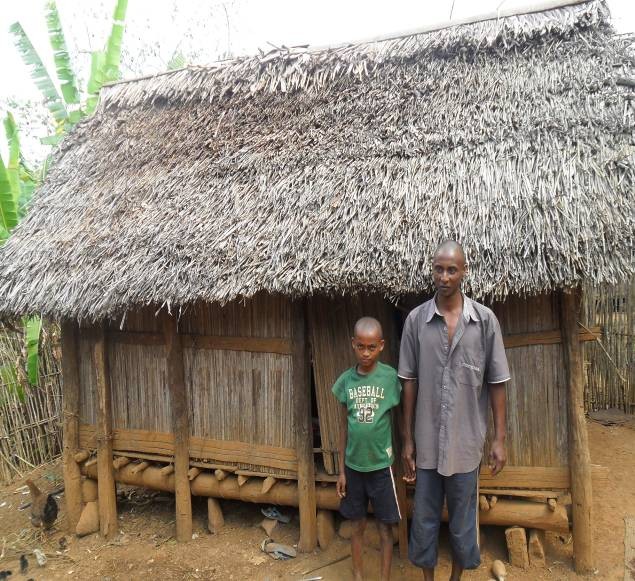
In Madagascar, the island nation off the east coast of Africa, most farmers cannot grow enough to feed their families for an entire year.
Since 2009, a USAID program, implemented by CARE, works in the most rural and poverty stricken regions of Madagascar to teach farmers new farming methods and link them together to improve production.
One such participant is Rasolonjavonirina Edmond, known as “Rasolo,” a 48-year-old farmer who lives in the village of Ambodimanga in the southeast with his wife and four children. The family grows rice, cassava and beans.
Rasolo typically has to sell half of his crops to pay his children's way through school and keep the other half to feed his family. But the food lasted for only four months. The remainder of the year the family scraped by.
When Rasolo saw his children underperforming in school due to hunger, he decided to join a USAID-backed farmer field school as a last effort to hang on to his farm before going to work in the mines. Many farmers start working in the mines to make quick money and supplement their farming, but the work is hard and not sustainable. Mines are only viable for a few years.
The more than 3,000 farmer field schools started by CARE in Madagascar, with USAID backing, help introduce farmers to new technologies. They congregate once a week to learn new techniques. As a result of the instruction, Rasolo adopted advanced fertilization and planting methods and a new variety of rice. After seven months, he was producing five times as much rice and four times as many beans as before.
Now he can feed his family all year. “Other farmers now come to me for advice and to learn new agricultural techniques,” says Rasolo. Happy with his progress, he also joined a Village Savings and Loan group, one of 960 that were started by CARE with USAID support in the country in the last three years. The group helps him save his money and take out small loans to pay for seeds, school fees, medicine and food during the hungry season.
Today Rasolo pays for his children’s schooling on time. They are all passing their classes with good grades. Rasolo has expanded his housing compound, including a room for storage and a new business he is launching.
He doesn’t hesitate to tell other members of his community: “My standard of living has increased, thanks to my willingness to participate and the USAID-CARE program.”
Since the program began, more than 52,000 farmers have benefitted, around half of them women.







Comment
Make a general inquiry or suggest an improvement.